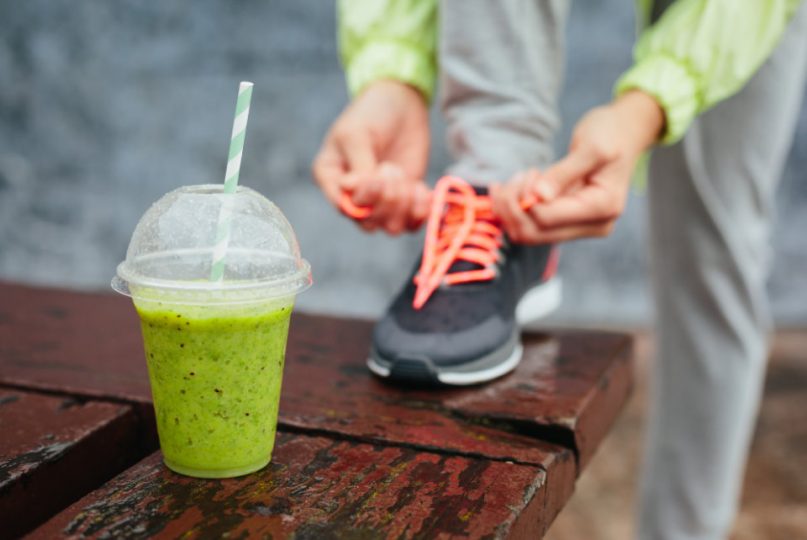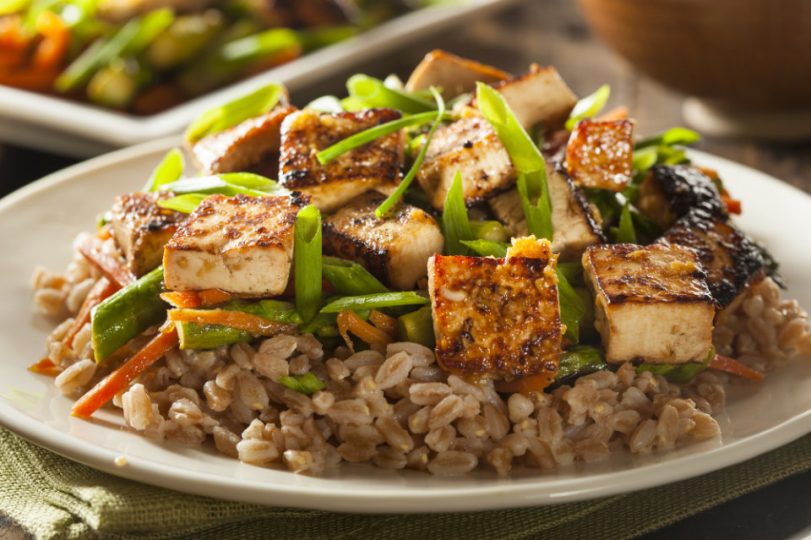Runners who eat an exclusively plant-based diet are often confronted with a lot of performance-related questions. How do you have the energy? Are you sure you’re not breaking down too much muscle? What about your protein intake? Aren’t you always hungry? And those are just the tip of the iceberg.
If you are a vegan runner, you may be asking yourself some of the same questions, especially if you are new to the plant-based diet or new to running. If you’re looking to optimize your running sessions and your recovery, here are the key facts to remember.
How to Fuel Your Runs
The body’s primary and preferred source of energy is glycogen. Carbohydrates, first broken down into glucose and then glycogen, are thus your main source of fuel.
You should aim to get between 45 and 65 percent of your total daily calories from carbs. Exactly how much will depend on your genetics and your current state of health, as well as your running routine.

If you are exerting yourself a lot, you will need more fuel, aka more carbs. Be mindful of the quality of the carbs you consume, though. Aim for whole-grain options, whether rice or pasta. Remember, vegan foods can also be unhealthy, and plant-based doesn’t always equal good for you.
In order for your muscles to recover after a run, you will need to eat enough protein every single day. Runners may need up to 1.8 grams of protein per kilogram of body weight, but you can start with 1.4 grams and monitor your recovery. If you feel like you don’t have enough energy and notice you’re losing muscle mass, it’s time to up your protein intake.
Finally, you will also need to eat healthy fats. They help you absorb vitamins and minerals from other foods, and they’re important for your hormone balance as well.
Your goal is to eat an 80% balanced diet, and the remaining 20% can be reserved for your favorite vegan snack. A balanced diet consists of nutrient-dense foods that are high in vitamins and minerals and that will meet those daily macro needs.
Plant-Based Protein Sources to Consider
Research has shown that there is no significant difference in performance between runners who follow a plant-based diet as opposed to a meat-based one. What matters is that you fuel your body with enough energy (aka carbs) and protein so that it can reach peak performance.
Protein can be the most difficult need to meet when on a plant-based diet. Note that animal proteins contain all the essential amino acids, while plant proteins do not. You will thus need to ensure that you’re eating a variety of protein-rich foods every day to make up for this deficiency.

Here are some great protein sources to consider:
- Tofu
- Beans
- Lentils
- Edamame
- Peas
- Quinoa
- Peanuts, almonds, and other kinds of nuts
- Pumpkin and sunflower seeds
- Hemp seeds
You can also add a plant-based protein powder to your diet in order to be absolutely certain that you’re meeting your daily protein requirements.
Important Micronutrients to Be Mindful of
Runners also need to be especially mindful of their intake of several micronutrients:
Calcium
Calcium is an important vitamin that promotes bone health, so it’s essential for runners. Whether or not it plays an important role in preventing stress fractures is still unclear, but this is certainly a micronutrient you can’t afford to neglect.
Since dairy (which is naturally high in calcium) is off-limits, try eating more spinach, collard greens, and broccoli. You can also rely on fortified plant-based milk.
Iron
This micronutrient is responsible for the formation of hemoglobin, a component that carries oxygen in the blood and ensures your muscles are efficient during a run.
An iron deficiency can quickly derail your entire running schedule, so make sure you are eating plenty of leafy greens, beans, lentils, and pumpkin seeds.
Omega-3 Fatty Acids
An Omega-3 deficiency can also significantly impact your runs, as these fatty acids are directly linked to cardiovascular and brain health.
However, since you cannot eat fatty fish, consider adding walnuts and chia seeds to your diet. Also take an Omega-3 supplement to ensure you’re meeting your daily needs.
How to Time Your Meals
If you are going out for a quick run in the morning, you don’t have to eat beforehand. However, a longer or a more taxing run will need to be properly fueled.
A good pre-run meal will:
- be high in carbs
- contain a moderate amount of protein
- be low in fat and in fiber
You know how your body digests different foods best, so choose something light, and make sure to hydrate.

An hour or two before a run is the best time to eat your pre-workout meal.
Your post-workout meal should also be high in carbs to replenish the glycogen stores you’ve just emptied on the track. Along with that, it needs to contain a lot of protein to help your muscles repair.
Thirty minutes after the run is the ideal time for a refueling meal.
Final Thoughts
Fueling your body properly is a crucial part of a well-rounded running strategy. If you are eating a plant-based diet, make sure to monitor your protein intake and focus on getting enough of all the various micronutrients your body needs.
And in any case, don’t listen to the naysayers who are doubting your performance. You can run as fast and as long as you want to – you just have to train right.





